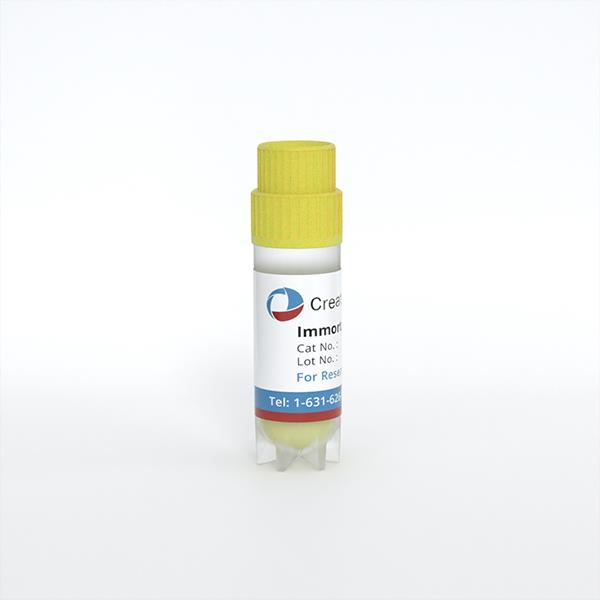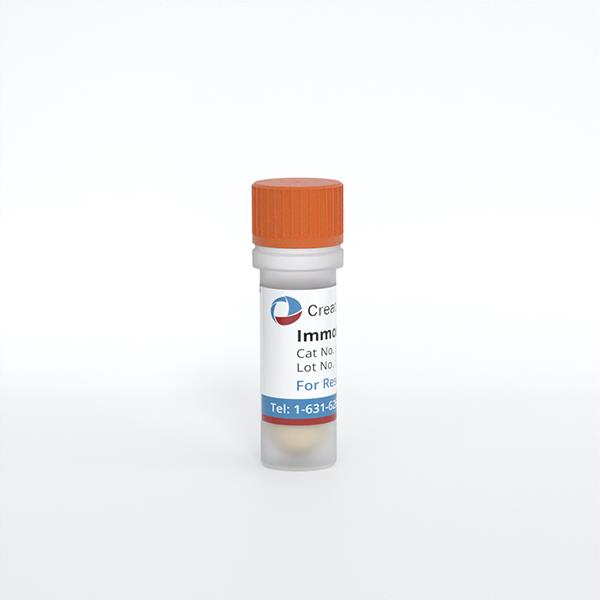
Immortalized Rat Embryonic Striatal (M26-1F) Cells-tsSV40T
Cat.No.: CSC-I9301L
Species: Rattus norvegicus
Source: Straitum
Morphology: Fibroblast-like
Culture Properties: Adherent
- Specification
- Q & A
- Customer Review
Cat.No.
CSC-I9301L
Description
Immortalized Rat Embryonic Striatal (M26-1F) Cells - tsSV40T has GABAgeric properties with multiple nucleoli, presence of GAD and MAP-2 antigen, absence of vimentin, and no contact inhibition features.
It is a tool which can be used to study GABA uptake and release, neural development and differentiation, and is a good model for Huntington’s disease. The cells grown in permissive temperature (33°C), whereas in non-permissive temperature (39.5°C), the morphology of the cells will become multipolar. SV40 large T antigen is stably expressed at both temperatures compared to the Immortalized Rat Embryonic Striatal (M213-2O) Cells - tsSV40T.
It is a tool which can be used to study GABA uptake and release, neural development and differentiation, and is a good model for Huntington’s disease. The cells grown in permissive temperature (33°C), whereas in non-permissive temperature (39.5°C), the morphology of the cells will become multipolar. SV40 large T antigen is stably expressed at both temperatures compared to the Immortalized Rat Embryonic Striatal (M213-2O) Cells - tsSV40T.
Species
Rattus norvegicus
Source
Straitum
Culture Properties
Adherent
Morphology
Fibroblast-like
Immortalization Method
Immortalized via infection with defective recombinant retrovirus carrying the A58 temperature-sensitive allele of SV40 large T antigen
Application
For Research Use Only
Storage
Directly and immediately transfer cells from dry ice to liquid nitrogen upon receiving and keep the cells in liquid nitrogen until cell culture needed for experiments.
Note: Never can cells be kept at -20 °C.
Note: Never can cells be kept at -20 °C.
Shipping
Dry Ice.
Recommended Products
CIK-HT003 HT® Lenti-SV40T Immortalization Kit
CIK-HT004 HT® Lenti-SV40 (tsA58 temperature sensitive mutant) Lentivirus Immortalization Kit
CIK-HT004 HT® Lenti-SV40 (tsA58 temperature sensitive mutant) Lentivirus Immortalization Kit
Quality Control
1) Immunostaining for SV40 T large antigen and markers
2) Test growth in permissive and non-permissive temperatures
2) Test growth in permissive and non-permissive temperatures
BioSafety Level
II
Citation Guidance
If you use this products in your scientific publication, it should be cited in the publication as: Creative Bioarray cat no.
If your paper has been published, please click here
to submit the PubMed ID of your paper to get a coupon.
Ask a Question
Write your own review
Related Products
Featured Products
- Adipose Tissue-Derived Stem Cells
- Human Neurons
- Mouse Probe
- Whole Chromosome Painting Probes
- Hepatic Cells
- Renal Cells
- In Vitro ADME Kits
- Tissue Microarray
- Tissue Blocks
- Tissue Sections
- FFPE Cell Pellet
- Probe
- Centromere Probes
- Telomere Probes
- Satellite Enumeration Probes
- Subtelomere Specific Probes
- Bacterial Probes
- ISH/FISH Probes
- Exosome Isolation Kit
- Human Adult Stem Cells
- Mouse Stem Cells
- iPSCs
- Mouse Embryonic Stem Cells
- iPSC Differentiation Kits
- Mesenchymal Stem Cells
- Immortalized Human Cells
- Immortalized Murine Cells
- Cell Immortalization Kit
- Adipose Cells
- Cardiac Cells
- Dermal Cells
- Epidermal Cells
- Peripheral Blood Mononuclear Cells
- Umbilical Cord Cells
- Monkey Primary Cells
- Mouse Primary Cells
- Breast Tumor Cells
- Colorectal Tumor Cells
- Esophageal Tumor Cells
- Lung Tumor Cells
- Leukemia/Lymphoma/Myeloma Cells
- Ovarian Tumor Cells
- Pancreatic Tumor Cells
- Mouse Tumor Cells
Hot Products
